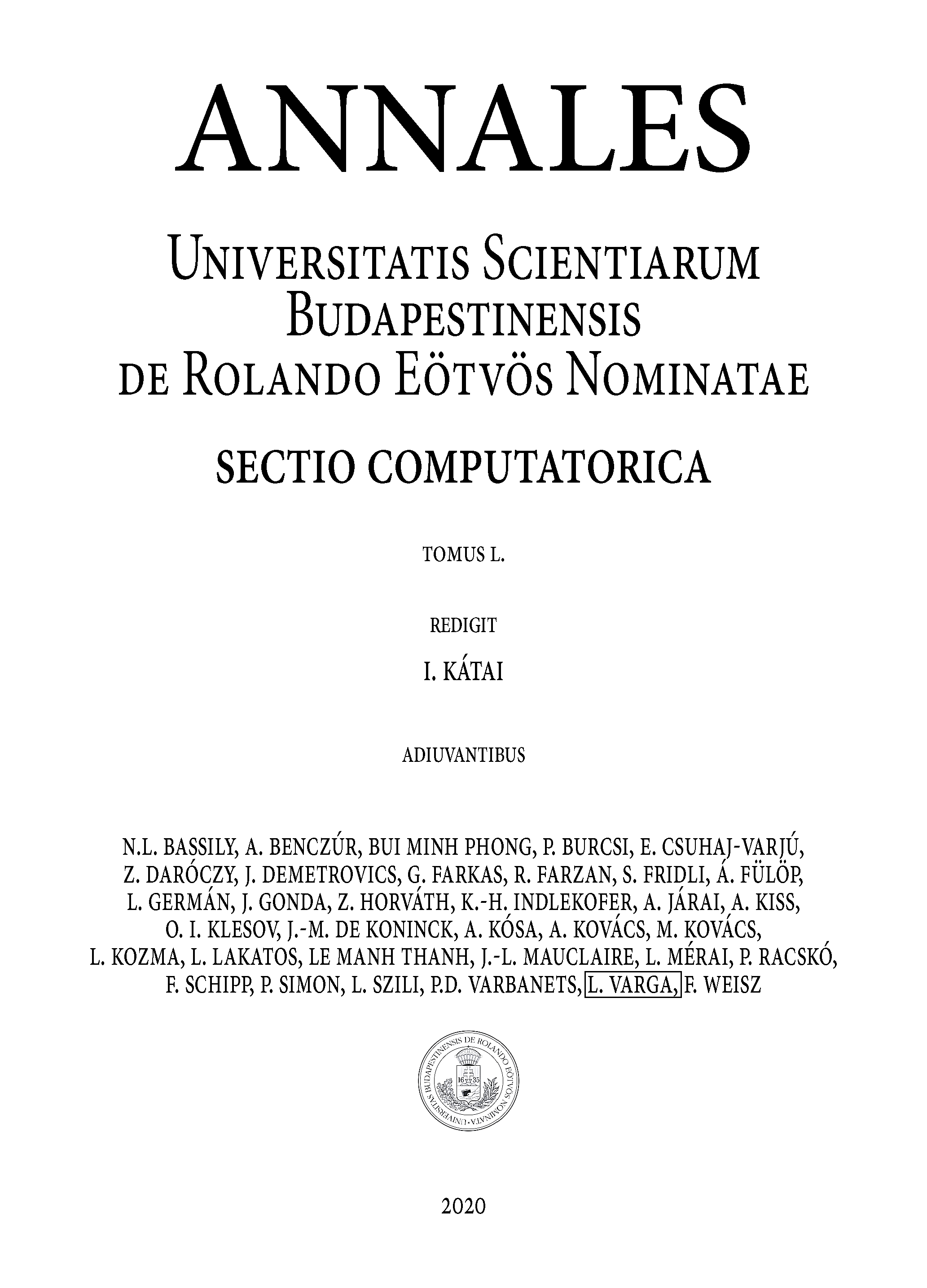https://doi.org/10.71352/ac.50.101
Characterising some triplets of completely multiplicative functions
Abstract. Let \({\cal M}_1^*\) stand for the set of completely multiplicative functions \(f\) such that \(|f(n)|=1\) for all positive integers \(n\) and let \(c_0,c_1,c_2\) be three complex numbers such that \((c_0,c_1,c_2) \neq (0,0,0)\). Given \(f\in {\cal M}_1^*\) and setting \(s(n):=c_0 f(n-1)+c_1 f(n) +c_2 f(n+1)\), we prove that if \(\lim_{x\to \infty} \frac 1x \sum_{n\le x} |s(n)| =0\), then \(c_0+c_1+c_2=0\) and there exists a real number \(\tau\) such that \(f(n)=n^{i\tau}\) for all positive integers \(n\). Moreover, let \(f_0,f_1,f_2\in {\cal M}_1^*\) and consider the sum \(s(n):=c_0 f_0(n-1)+c_1 f_1(n) +c_2 f_2(n+1)\). Assuming that \(\lim_{n\to \infty} s(n)=0\) and assuming also that either \(f_0(n)=f_1(n)\) or \(f_0(n)=f_2(n)\) or \(f_1(n)=f_2(n)\), then \(c_0+c_1+c_2=0\) and there exists \(\tau\in \mathbb{R}\) such that \(f_0(n)=f_1(n)=f_2(n)=n^{i\tau}\) for all positive integers \(n\). Further similar results are also proved.
Full text PDF
 ELTE Eötvös Loránd University
ELTE Eötvös Loránd University